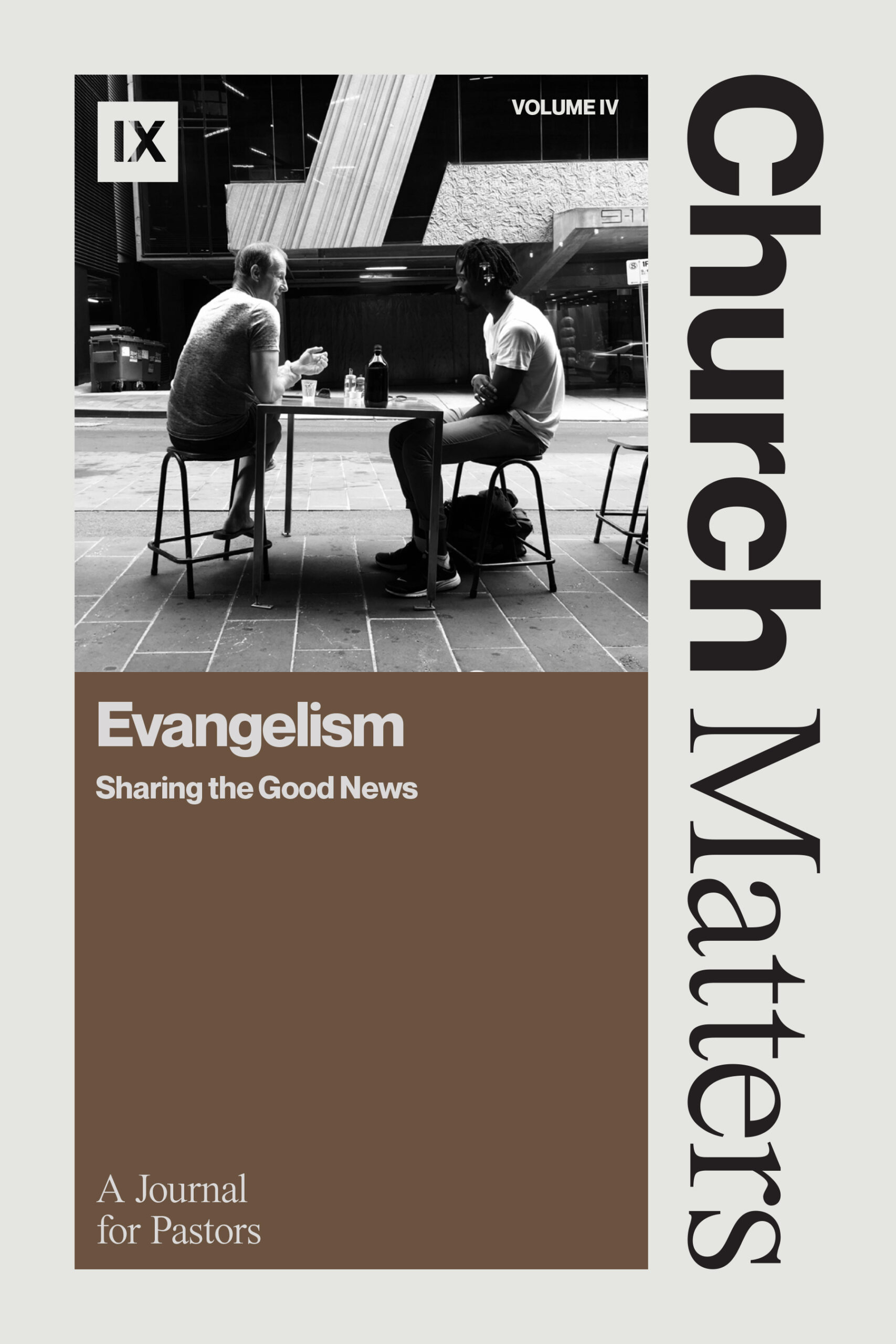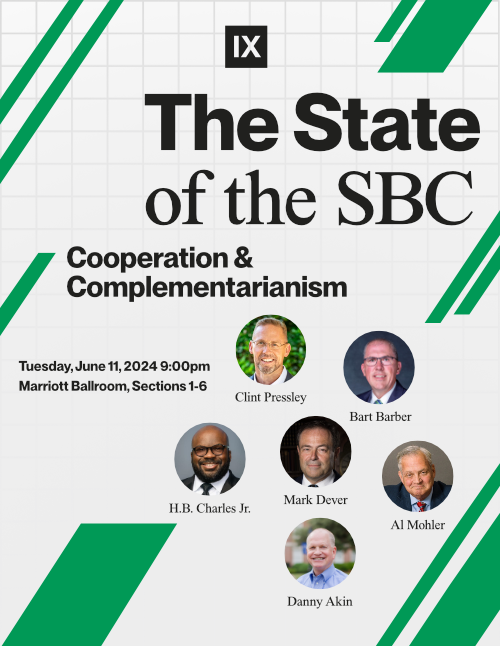Tim Keller on Apologetics as Evangelism
Editor’s note: The following excerpt is from the biography Timothy Keller by Collin Hansen. In this excerpt, Hansen recounts Keller’s interactions with students attending an evangelism event put on by the Oxford Inter-Collegiate Christian Union—an event which Keller spoke at multiple times. While addressing a skeptic’s concern over Christianity’s judgment against homosexuality in 2015, Keller exposed the false assumptions about individualism, community, and moral truth living under the surface of the skeptic’s question. From this interaction and the fruit that followed, we are encouraged to consider how we may employ a similar apologetical approach when confronting secularism’s edge in evangelism.
Every three years, the Oxford Inter-Collegiate Christian Union (OICCU) hosts a six-day mission to evangelize more than 20,000 students in this iconic English university town. The missions began in 1940, months before the Battle of Britain. Martyn Lloyd-Jones led the missions in 1943 and 1951. Other heroes of Tim Keller—John Stott and Michael Green—also led Oxford missions.
During his first Oxford mission in early February 2012, Tim and Kathy Keller along with their son Michael and his wife Sara stayed in the Old Parsonage Hotel, just a couple blocks north of the Oxford University campus. As the family returned one night through falling snow, they caught a glimpse of a traditional lamp post. The magic of Narnia still lingered around Oxford.
In the evenings around a 17th-century fireplace the Keller family debriefed the good and bad from Tim’s evangelistic talks and the students’ questions. The talks from 2012 became Keller’s book Encounters with Jesus: Unexpected Answers to Life’s Biggest Questions. Many of the book’s themes can be found in earlier books such as The Reason for God, Counterfeit Gods, and The Prodigal God.
When Keller returned in 2015, he insisted on a topical approach as opposed to the expositional talks he was asked to deliver in 2012. He wanted to test what he’d been learning from the social critics Charles Taylor, Alasdair MacIntyre, Philip Rieff, and Robert Bellah. Os Guinness delivered the lunchtime talks while Keller spoke in the evenings on meaning, identity, and justice. After each day these good friends with shared love for Francis Schaeffer and L’Abri retreated to the fireside at the Randolph Hotel and talked late into the morning. Compared to 2012 Keller saw more encouraging responses from skeptical students in 2015.[1] On the spot during Q&A in this second mission Keller conceived what became one of his most memorable illustrations.
He was responding to a question about the Christian view of homosexuality. Keller realized he couldn’t answer without turning the tables and critiquing the concept of identity in the modern West. His response ended up that summer in his book Preaching: Communicating Faith in an Age of Skepticism.
Keller asked the Oxford students to imagine an Anglo-Saxon warrior in Britain in AD 800. Inside he feels the impulse to destroy anyone who disrespects him. That’s the response his honor/shame culture demands, and so he does. But he also feels sexually attracted to men. His culture demands that he suppress those feelings, so he does not act on them. Now consider a man of the same age walking the streets of Manhattan in our day. He feels just like the Anglo-Saxon warrior. He wants to kill anyone who looks at him the wrong way. And he desires sexual relations with other men. Our culture sends him to therapy for anger management. He will identify publicly with his sexual orientation.
So what does this illustration teach us? Keller explains:
Primarily it reveals that we do not get our identity simply from within. Rather, we receive some interpretive moral grid, lay it down over our various feelings and impulses, and sift them through it. This grid helps us decide which feelings are “me” and should be expressed—and which are not and should not be. So this grid of interpretive beliefs—not an innate, unadulterated expression of our feelings—is what shapes our identity. Despite protests to the contrary, we instinctively know our inner depths are insufficient to guide us. We need some standard or rule from outside of us to help us sort out the warring impulses of our interior life. And where do our Anglo-Saxon warrior and our modern Manhattan man get their grids? From their cultures, their communities, their heroic stories. They are actually not simply “choosing to be themselves”—they are filtering their feelings, jettisoning some and embracing others. They are choosing to be the selves their cultures tell them they may be. In the end, an identity based independently on our own inner feelings is impossible.[2]
Instead of responding directly to the question about homosexuality, Keller turned to the underlying assumptions of identity in Western culture, what Bellah termed “expressive individualism.” First published in 1985, Bellah’s Habits of the Heart: Individualism and Commitment in American Life says, “Expressive individualism holds that each person has a unique core of feeling and intuition that should unfold or be expressed if individuality is to be realized.”[3] Individuality may be the goal, but as Keller observes with the Anglo-Saxon warrior, identity forms in community. And communities shape what values can contribute to our identity. No one is free to be anything they want, especially when the government imposes secular views of sexuality on law and public education. Power convinces everyone they’re expressing their individual identity, while instead they’re all doing the same thing.[4]
This tension between expression and community is the dynamite beneath the Enlightenment implosion. Bellah and his colleagues saw it coming long before same-sex marriage became law across the West.
What we fear above all, and what keeps the new world powerless to be born, is that if we give up our dream of private success for a more genuinely integrated community, we will be abandoning our separation and individuation, collapsing into dependence and tyranny. What we find hard to see is that it is the extreme fragmentation of the modern world that really threatens our individuation; that what is best in our separation and individuation, our sense of dignity and autonomy as persons, requires a new integration if it is to be sustained.[5]
In other words, everyone wants freedom and community at the same time. What passes as freedom in the West is actually fragmentation that makes community impossible to sustain, except through coercion. Christians will love their neighbors by showing how Jesus offers freedom from sin and communion with the triune God in the body of Christ.
Informed by Bellah and these other social critics, Keller’s 2015 Oxford talks contributed to his book released that fall, Making Sense of God: An Invitation to the Skeptical. Compared to The Reason for God, Making Sense of God hasn’t found a broad audience. But it’s the apologetics book he would have written in 2008 if he’d known then what he later learned.
Making Sense of God aims to expose the assumptions behind the objections to Christianity, while also seeking to stimulate interest in Jesus by exposing the contradictions in Western efforts to find a viable alternative to the Enlightenment. So far at least, the audience with intellectual inclination and spiritual openness hasn’t yet materialized outside highly select venues such as the Oxford missions, which Keller reprised in 2019.[6] Before his 2019 mission, OICCU adjusted the typical order and preceded Keller’s talks with weeks of small-group discussion, rather than following up afterward. The result was even more encouraging than 2015 and led Keller to begin planning ways to adapt such a model for evangelism in the United States.
* * * * *
[1] Tim Keller, interview with Collin Hansen, June 24, 2021.
[2] Timothy Keller, Preaching: Communicating Faith in an Age of Skepticism (New York: Viking, 2015), 135-136.
[3] Robert N. Bellah, Richard Madsen, William M. Sullivan, Ann Swidler, and Steven M. Tipton, Habits of the Heart: Individualism and Commitment in American Life (Berkeley and Los Angeles: University of California Press, 2008), 333-334.
[4] Timothy Keller, Hope in Times of Fear: The Resurrection and the Meaning of Easter (New York: Viking, 2021), 197.
[5] Robert N. Bellah, Richard Madsen, William M. Sullivan, Ann Swidler, and Steven M. Tipton, Habits of the Heart: Individualism and Commitment in American Life (Berkeley and Los Angeles: University of California Press, 2008), 286.
[6] Craig Ellis, interview with Collin Hansen, January 15, 2021.









